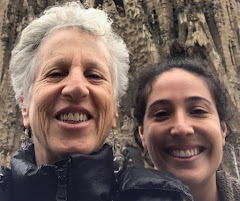by Susan Matthewson
Meg’s father died suddenly in January and ever since Meg had had to go straight home from school every afternoon to be with her grieving mother. Always a shy, reclusive woman, dependent on her husband for everything, Mrs. Quinn became even more reclusive, clinging to Meg and depending on her as she had Mr. Quinn.
Meg’s father died suddenly in January and ever since Meg had had to go straight home from school every afternoon to be with her grieving mother. Always a shy, reclusive woman, dependent on her husband for everything, Mrs. Quinn became even more reclusive, clinging to Meg and depending on her as she had Mr. Quinn.
I was Meg’s best friend, but Mrs.
Quinn seemed now to resent it when I’d drop by. She’d let me in but insisted we
stay home, so Meg and I listened to records or played games in her room. Once
school was over, the summer days were long and boring cooped up inside. And it
was spooky how Mrs. Quinn drifted around the house like a shadow.
By the
end of June, Meg and I were desperate to get out of the house. A devout
Catholic who never missed mass, Mrs. Quinn finally let us attend St. Xavier’s
annual craft fair one Saturday. We had a great time, joking with our friends
and visiting the booths. Excited by our freedom, we decided to create the Forsythes, a lovely family—mother, father, and two kids—who wanted us to babysit
for them. If we could convince Meg’s mom, the Forsythes would be our ticket to afternoons
riding bikes or swimming at the pool. When we needed to we’d just invent a
babysitting job. We schemed all afternoon, working hard to invent a family Mrs.
Quinn would approve of.
In their favor, the Forsythes were
Irish Catholics like the Quinns and attended St. Xavier’s. We knew Mrs. Quinn
would like that. Also, the Forsythes lived in Park Hill, a neighborhood not far
from ours where “rich” people lived in large homes that were much more
distinctive than the small brick bungalows on our block. Meg’s mother idolized
the rich and famous, spent hours reading movie magazines about Hollywood stars,
and Meg said she’d be impressed that the Forsythes lived in Park Hill. Though reluctant
at first, Mrs. Quinn finally decided it would benefit Meg to spend time around
what she called “quality” people like the Forsythes.
We
babysat for the Forsythe's three or four times a week. To our surprise, Mrs.
Quinn became fascinated with them. When we’d return, she’d want to know all
about them, how their house was decorated, what Mrs. F wore, how she fixed her
hair, what the kids were like. Meg and I actually began to look forward to
telling her about the Forsythes because she enjoyed it so. She often sighed and
said, “Well, they’re just the perfect family aren’t they?” And, of course, they
were perfect because Meg and I had made them up. Over the summer our stories
about them became so detailed that we almost began to believe they were as real
as Mrs. Quinn thought they were.
One day
in mid-August, we returned from “babysitting” to find Mrs. Quinn waiting for us
with a solemn look on her face.
“Oh, I
bet you girls think you’re so smart? she
said. “But I know what you’ve been up to.”
Meg and
I froze, watching our freedom evaporate.
“Don’t lie to me now,” she said. “I
know the truth because I’ve just talked to Mrs. Forsythe on the phone.”
I
almost choked on my spit, but Meg, cool and calm, said “Well, now, ma, tell us
just exactly what Mrs. Forsythe said. It must be a misunderstanding.”
Still
nervous, but now very curious, we waited impatiently to hear what the imaginary
Mrs. Forsythe had said to the very real Mrs. Quinn, confident we could explain
everything. After all, we knew Mrs. Forsythe so much better than Mrs. Quinn did.



